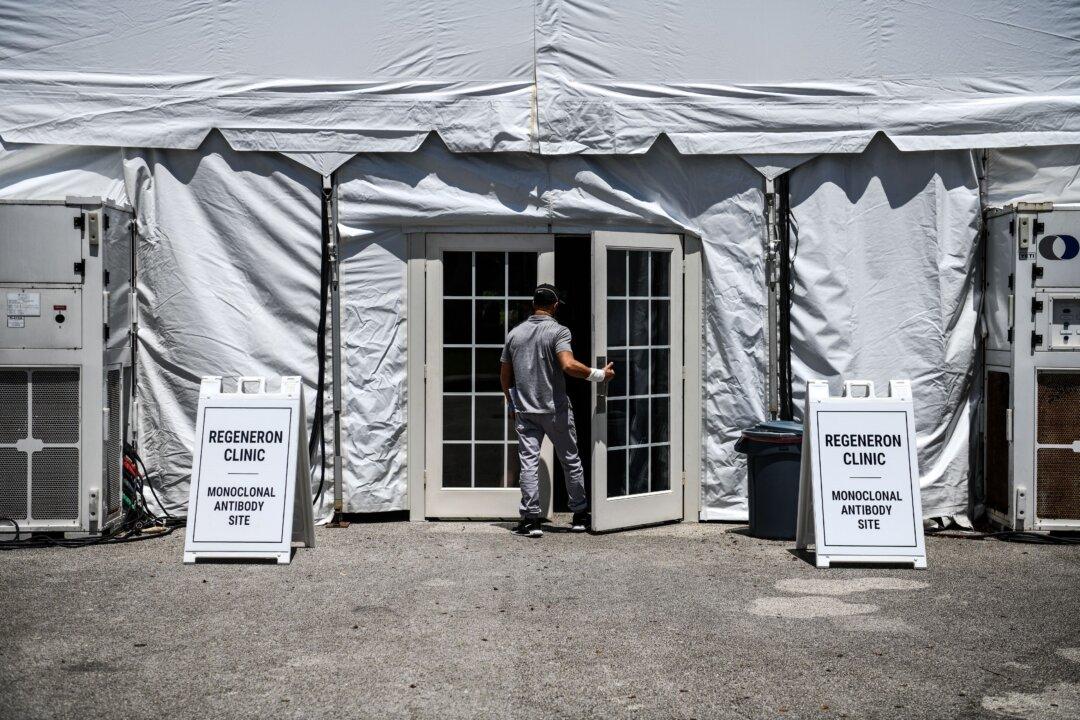Following the Biden administration’s surprise announcement that Health and Human Services (HHS) is taking over the distribution of monoclonal antibody infusion treatments for COVID-19—reducing the number of doses in several red states by 50 percent—a spokesperson for Florida Gov. Ron DeSantis said he has reached out to GlaxoSmithKline to “fill the deficit.”
Some states are set to receive fewer doses of monoclonal antibody treatments after the Biden administration switched the distribution system this week. Florida, Alabama, Texas, and Tennessee are among the states targeted to have their monoclonal antibody (mAb) doses restricted by HHS.





